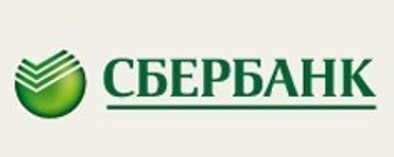BAPИАНТ 5
I. Read and translate the text.
Motivation
Definition of motivation
1. Motivation is the personal internal «force» that causes people to work to achieve organizational goals and by doing it to satisfy their personal needs.
2. When we say that a job motivates employees, we mean that it activates this force or the process within employees to behave in a particular way.
3. When it seems that employees work only to achieve the general goals of an organization, they behave in this way only to achieve their own purposes to satisfy their needs.
4. The task of the manager is to create the possibilities for the employees to satisfy their needs to the full extent as a reward for their work and skills.
5. Practical management is based on certain scientific theories.
Scientific theories of motivation
6. There are several scientific theories of motivation.
7. Taken together, these models of motivation represent a good «guide book» for managers.
8. We shall consider only some of them.
9. One of the first approaches to employee’s motivation was Frederick Taylor’s scientific theory. Taylor believed that employees work only for money and that they must be closely supervised and managed.
10. He reasoned that the pay should be tied to output because workers «soldiered» or worked slowly. He said that the more a person produced, the more he or she should be paid.
11. This gave rise to the piece-rate system under which employees are paid a certain amount for each unit of output they produce.
12. This theory didn’t take into account social processes in the workplace.
13. Douglas McGregor labeled this view Theory X and then described an alternative view called Theory Y which was based on the idea that employees can be motivated to behave as responsible members of an organization when it is clear to them that accomplishing the organizational goals will bring them personal rewards.
14. This leads to the dedication and loyalty to the firm that are in evidence at the Japanese firms with the common desire to do thus increase productivity.
15. People will work towards goals to which they are committed.
16. McGregor maintained that his theory (Theory Y) was much more effective as a guide for managers.
17. However, human motivation is a complex and dynamic process to which there is no simple key. A variety of factors must be considered in any attempt to increase motivation.
Hierarchy of needs
18. Abraham Maslow, an American psychologist, advanced a theory of a hierarchy of needs. Maslow assumed that people seek to a variety of needs.
19. He assumed that they can be arranged according to their importance in sequence known as Maslow’s hierarchy of needs or Maslow’s pyramid of needs:
Physiological needs. Safety needs. Social needs. Esteem needs. Self-realization needs.
20. At the most basic level are physiological needs, the things we require to survive.
21. These needs include food and water, clothing, shelter, and sleep.
22. In the employment context, these needs are usually satisfied through adequate wages.
23. At the next level are safety needs, the things we require for physical and emotional security. Safety needs may be satisfied through job security, health insurance, pension plans, and safe working conditions.
24. Next are the social needs, the human requirements for love and affection and a sense of belonging.
25. To an extent, these needs can be satisfied through the work environment and the informal organization.
26. But social relationship beyond the workplace-with family and friends, for example- are usually needed too.
27. At the level of esteem needs, we require respect and recognition (the esteem of others), as well as a sense of our own accomplishment and worth (self-esteem).
28. These needs may be satisfied through personal accomplishment, promotion to more responsible jobs, various honors and awards, and other forms of recognition.
29. At the uppermost level are self-realization needs, the needs of people to increase all their human potentials and capabilities.
30. These are the most difficult needs to satisfy, and the means of satisfying them vary with the individual.
31. For some people, learning a new skill, starting a new career, or becoming «the best» at some endeavor may be the way to satisfy the self-realization needs.
32. Maslow suggested that people work to satisfy their physiological needs first, then their safety needs, and so on up the «needs ladder».
33. In general, they are motivated by the needs at the lowest (most important) level that remain unsatisfied.
34. However, needs at the next-higher level come into play.
35. If the majority of a person’s physiological and safety needs are satisfied, that persons will be motivated primarily by social needs.
36. As needs at one level are ratified, people try to satisfy needs at the next level.
Exercises
I. Find the Russian Equivalents:
Rate system
unit of output
dedication and loyalty
hierarchy of needs
variety of needs
sequence
psychological needs
esteem needs
social needs
safety needs
self-realization needs
adequate wages
physical and emotional security
job health
insurance security
sense of belonging
respect and recognition
self-esteem
personal accomplishment
promotion
honors and rewards
endeavor
majority
achieve goals
behave
create
consider
supervise
advance a theory
arrange needs
satisfy needs
grow and develop
learn
represent
motivate
I. Find the English Equivalents:
Личная внутренняя сила
личные потребности
достижение общих целей
их собственные цели
задача менеджера
возможность
награда
мастерство
научная теория
модели мотивации
мотивация работников
научный менеджмент
сдельная система
единица продукции
ответственные члены организации
преданность и верность
удовлетворение
признание
самоуважение
физическая безопасность
безопасность работы
страхование на случай болезни
потребности в самореализации
потребности в безопасности
физиологические потребности
ряд потребностей
иерархия потребностей
почести и награды
выдвигать теорию
удовлетворять потребности
достигать цели
расти и развиваться
мотивировать
надзирать
вести себя
создавать
выживать
предполагать
осуществлять
создавать
вызывать
II. Fill in the gaps with the words and expressions from the text:
1. Motivation is the personal internal «Force» that causes to work to achieve organizational and doing it to satisfy their personal needs.
2. Taylor believed that employees work only for money and that they must be closely supervised and management.
3. Taylor’s theory gave rise to the piece-rate system.
4. Theory Y was based on the idea that employees can be motivated to behave as responsible members of the organization and this leads to dedication and loyalty.
5.He advanced a theory of a hierarchy of needs.
6. At the most basic level of Maslow’s pyramid are physiological needs.
7. At the uppermost level of his pyramid are self-realization needs.
8. Maslow suggested that people work to satisfy their physiological needs first.
9. As needs at one level are satisfied people try to satisfy needs at the next level.
III. Answer the questions;
What is motivation? Give a short definition
1. What is practical management based on? – Practical management is based on certain scientific theories.
Which theory of these two takes into account social process in the workplace
Why do people at the Japanese firms work towards organizational goals?
Find in the text the words and word combinations which define safety needs, social needs, and esteem needs
| 









